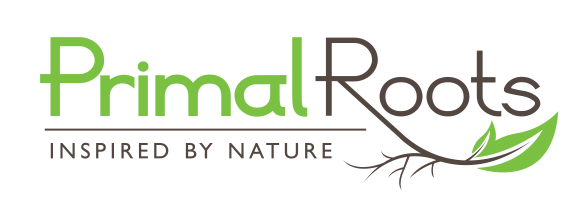Wellness is defined slightly differently depending on your source. I like to think of it as a process where one makes choices and decisions in order to move toward a healthy and fulfilling life. It is not simply the absence of illness or disease; true wellness encompasses physical, mental, and spiritual well-being.
“Our bodies are our gardens, to the which our wills are gardeners.”
“Wellness is a connection of paths: knowledge and action.”
Physical
For those who are regularly healthy, we generally tend to take our health for granted. When illness strikes, it can feel like the end of the world. During this period of dis-ease, the possibility that we can enjoy special events, never mind finding joy in day-to-day occurrences, can seem preposterous. Personally, I would rather sleep through it all and hopefully come out the other side as soon as possible. Maintaining physical wellness requires a commitment to a lifestyle that supports, rather than taxes, the immune system and adrenal glands. The lists below are what we all know already; making personal changes, however, requires a hard look at our priorities.
Taxing Wellness
- unhealthy diet
- improper sleep (interrupted or less than 7 hours)
- infrequent exercise
- heavy stress load (especially for prolonged periods)
- inability to recognize stress buildup
Supporting Wellness
- healthy diet
- proper sleep (uninterrupted, 7-9 hours per night)
- regular exercise
- light stress load (short periods)
- recognizing when recharge is necessary
Alternative health practitioners who support physical health:
- Naturopathy: uses natural agents (air, water, herbs) and physical manipulation (such as acupuncture or Bowen Therapy) in order to treat disease
- Osteopathy: gentle manual therapy that treats and strengthens the muscles, joints and soft tissues in order to promote well-functioning circulatory, lymphatic and nervous systems
- Homeopathy: using minute doses of natural substances to encourage the body to heal itself
- Biofeedback: tests the body's response to the natural frequency found in a substance, and uses electrical impulses to train the body to recognize any substances which are not currently accepted
- Nutritionist: uses the science of nutrition to develop a specific plan for your dietary needs
- Orthomolecular nutrition: using supplements to maintain health
- Acupuncture: a key component of Traditional Chinese Medicine, this involves inserting very thin needles into specific spots near the surface of the skin to remove any blockages along the body's energy lines, or meridians, in order to alter biochemical processes and physiological conditions
Mental
Mental health is on a completely different continuum as mental illness. A person's mental health status is always changing based on life circumstances, and is therefore not a static measure. A person who has been diagnosed with a mental illness can experience good mental health, just as a person who does not have a mental illness can have very poor mental health. Each individual's mental health status is constantly changing, and is related to numerous factors, including:
- ability to cope with situations and events
- productivity at work and/or at home
- personal support circle (family/friends)
- contribution or connectedness to community
Improving one's mental health is a process that can be influenced by many factors. Feeling satisfied with daily life & job, eating a healthy diet, having an exercise routine, journalling, taking up a hobby, volunteering and meditation are all contributing factors to valuing ourselves and feeling that we are worthy members of society.
Alternative health practitioners who support mental health:
- Integrative Therapy: combining elements from different branches of psychotherapy in order to individualize treatment
Spiritual
Our spiritual self can be nurtured in many ways, but following a spiritual path can be very simply described as learning to let go, one step at a time. Complete surrender (or spiritual enlightenment) is when a person is able to surrender to the voice of one's deeper intelligence, which removes the road blocks that allow fear and doubt to control our thoughts and actions. Easier said than done!
A few ways to allow yourself to acknowledge your spirituality are listed below. These actions in themselves are not necessarily spiritual; the doer must arrive with the intention of creating a spiritual space.
- wake up happy (the intention to have a great day and be happy often results in just that)
- trust your intuition and allow for opportunities to present themselves, as forced outcomes may not be as good for you as ones that arise naturally
- practice mindfulness (mindful awareness is also called meditation; there are many wonderful guided mindful breathing and meditations online for free to get you started)
- forgive yourself in order to move forward, and continue to do the best you can each day
- live in the moment by appreciating where you are, who you are with and what you are experiencing
- journal to get to know yourself better, to heal from past experiences, and to figure out what it is you really want
- ground yourself by connecting with the earth (bare feet) and spending time in nature
- eat to augment your vibration level (seasonal, fresh, local, organic, cruelty-free are best!)
- improve your sleep hygiene (go to bed and wake at the same time every day, get 7-9 hours of sleep, create a bedtime routine that is calming and relaxing, do not use a powered device at least 45 minutes before bed and do not keep electronics in your room)
Alternative health practitioners who support spiritual health:
- Reiki practitioner: energy channeling through the hands of the practitioner in order to promote physical and emotional healing
- Shamanic Counsellor: client is guided to use shamanic divinatory methods and journeying skills in order to derive wisdom and answer spiritual questions
Body, mind and spirit are so closely connected that many of the suggestions above are repetitive. In order to achieve a balanced whole, one needs to feed all aspects of one's being.

